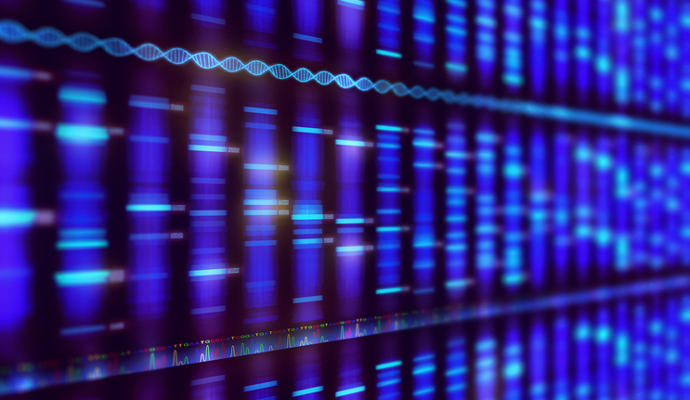Initiative to Use Genetic Data to Prevent Hereditary Cancer
A public health initiative will leverage individuals’ genetic data and family history to fight hereditary cancer.

Source: Thinkstock
- Brigham Young University’s (BYU) Center for Family History and Genealogy and the University of Washington have partnered to prevent hereditary cancer using genetic data.
The Connect My Variant project will leverage DNA information and family history to increase preventive cancer care.
“A number of medical conditions are hereditary, so we can learn about the immediate family medical history and inform our doctors when we visit,” said Jill Crandell, director of the BYU Center for Family History and Genealogy and associate professor of family history.
“With DNA testing among the general population, it’s now possible to learn of hereditary diseases that have come down to us from an ancestor many generations back. It’s possible to contact distant cousins to inform each other of extended family risks. Hereditary cancer is one disease where knowing your genealogy and your extended family medical history could save your life.”
Hereditary cancer can essentially be eliminated if people know their family history. Inherited cancer-causing gene variants in genes like BRCA1 and BRCA2 cause more than a 50 percent lifetime risk of breast or ovarian cancer. Inherited variants in other genes cause a high risk of colon cancer and other cancers.
“Oftentimes, someone knows they've got a history of cancer in their family and can talk to their doctor and take preventative action,” said Brian Shirts, MD, PhD, an associate professor of laboratory medicine and pathology at the University of Washington. “They can tell their relatives and help save their lives as well.”
Identifying such variants in living relatives can help prevent cancer for a few individuals. While tracing the variant back to a common ancestor can help prevent cancer in dozens of people, it’s a challenging process.
“After Dr. Shirts identifies participants who have the variant, he sends them to our team at BYU. We’re able to do the research on their family lines and help identify which ancestor may have had the variant,” said Crandell.
“Once we've identified the ancestor, we can do research and find relatives that the participant can contact and tell them of their potential increased chance of cancer. This is helpful because most people don't know their relatives beyond first cousins.”
Research will start with the BYU team working directly with the participant to gather information about their known relatives. Then, BYU student researchers combine DNA and traditional genealogical research as they comb through family history records and databases on websites like FamilySearch and Ancestry.
Researchers will analyze death records and obituaries to construct participants’ family trees and trace cancer-causing variants to a common ancestor.
“Students do the research,” said Crandell. “We're here to give the students mentored learning experiences to help them develop their skills beyond the classroom.”
The process, methodology, and research findings have to be completely accurate to have full confidence in cancer-causing genetic mutations in a family line.
“This is a very serious thing to get right,” said Julie Stoddard, coordinator at the Center for Family History and Genealogy. “If there's any uncertainty, we don't write it up. We combine DNA research with traditional records to make sure we're following the DNA lines and verifying we've got the right lines.”
As more participants identify a common ancestor who had the genetic mutation and connect with their living relatives who descend from that ancestor, researchers expect that more lives can be saved. The Connect My Variant project is funded by Brotman Baty Institute for Precision Medicine.
“Knowing your family history is important, but knowing how you might be impacted by your heritage and using that information to help save the life of one of your cousins is impactful,” said Shirts.
